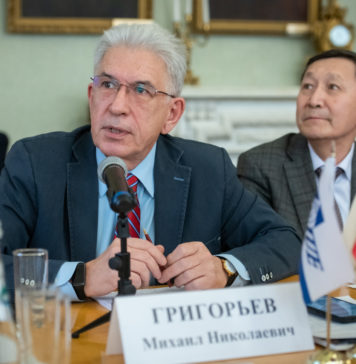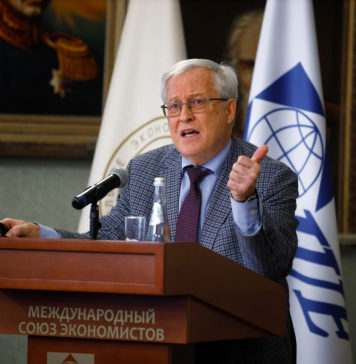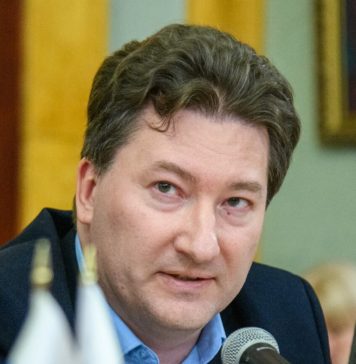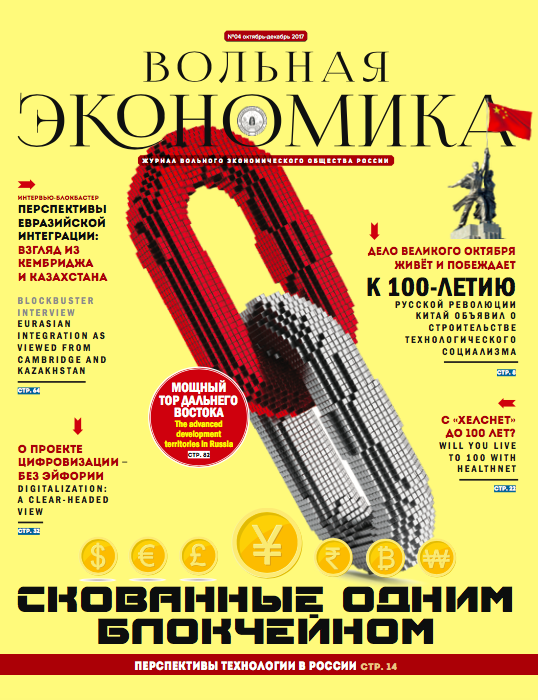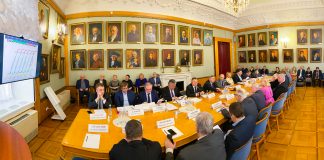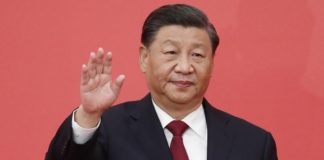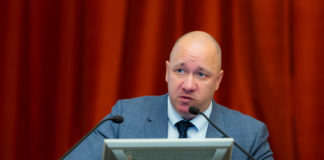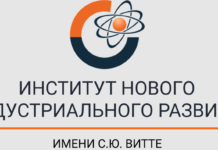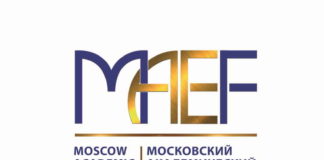What is to be done to not end up as we always do.
The train of technological development is moving so fast that it is impossible to keep up with it and try to jump into the last car. Digitalization, understood as the universal implementation of digital information technologies, as going completely digital — is what the Russian authorities proclaim as a way to recover lost economic positions. If we think we can achieve some kind of acceleration through digitalization, it is, of course, true, but what exactly will we accelerate? What kind of economy? So, after the initial analysis of the proposed “digital” initiatives Russian economists made a number of important remarks on what may “not work” in the idea itself and, even more so, in the way it is supposed to be implemented.
PROBLEMS OF THE ECONOMY PROGRAM
Sergey Bodrunov, President of the Free economic society of Russia, Director of the S.Yu. Witte Institute of New Industrial Development
The ministries are debating on a new draft government decree — who will manage the “digital economy” and how. The question is important: huge money in the future, great powers, etc. Ministry of Communications has prepared a draft government decree on the management system for the implementation of the Digital Economy program. For this, it has proposed to form an ecosystem with a center — an autonomous non-profit organization that will be responsible for the implementation of the program. As regards the participants of the program, they are the basic state corporations including Rostekh, Rosatom, etc. Unquestionably, they are competent firms possessing necessary knowledge, but the those responsible for the implementation are the same. Thus, program managers, those responsible for the implementation, and supervisors are all rolled into one. In my opinion, this leads to a conflict of interests.
There is also a draft government decree prepared by the Ministry of Economic Development concerning the ministry’s scope of authority. They have their own view. It is proposed to transfer all control to the Ministry of Economic Development, together with legal regulation. This is an important point, because a huge number of amendments has been made in regulatory acts, and someone should coordinate and supervise this process. That is, someone should control and coordinate the MED. And it is proposed that the Ministry of Communications be left in charge of strategic functions, research competencies, technologies, digitalization infrastructure, etc. It seems to me that this project is more rational.
I would not give preference to any specific directions of technological development in the digital/information sphere. And I would not approve of dwelling on only those things that are owned by our esteemed giant concerns. I myself am a trained IT specialist, and I can say that many things in this area seem to appear “out of nowhere”; today it is impossible to keep scientific process in rigid frames, it is impossible to develop technologies, especially digital ones, by simply pointing in various directions.
Having read the program, I believe that it keeps the risk that was reflected in the opinion of the Government’s expert council concerning its draft. There was this phrase: “… the proposed description of the program allows us to conclude that the goal of the project is not the fast-track development of the Russian Federation, but the desire to raise the level of digitalization of the country’s economy to the current level of a number of developed countries by 2025 … Such a position will lead to a situation in which by 2025 Russia will need to develop another program for the development of digital economy, since one of the fundamental characteristics of information technology is the rapid introduction of new technologies that cannot be foreseen today. “
Thus, for myself, I have isolated two big problems. One problem is the proposed approaches to the program, the second is program management. The success of the program and, given its importance and role for the country, Russia’s ability to join the team of 21st century economic leaders depend on how these two problems will be solved.
REALIZING THAT THE WORLD IS DIFFERENT
Sergey Kalashnikov, First Deputy Chairman of the Committee on Economic Policy of the Federation Council of the Federal Assembly of Russia, Chairman of the Interim, Commission on Monitoring Economic Development of the Federation Council, Doctor of Economics, Professor
What is the government form of modernization? It seems to me that the question is purely rhetorical, and the answer is straight: unfortunately, the current government system is unable to provide a strategy for socio-economic development for the nearest future, even for a decade, not to mention until 2030. Such a strategy for socio-economic development should be proposed by December 2017. The current apparat cannot in principle prepare it for one simple reason: there is not even a general understanding of terminology, let alone the essence of those processes that await us in the future. I will give a concrete example concerning the confusion between two concepts. They are digital economy and new technological order. Digitalization is a kind of format of what already exists. And if it doesn’t exist, what is there to format? The ten platforms earmarked for digitization by the government don’t matter. Why? Because the digital format and the exchange of information on the basis of digital platforms imply new types of relationship among different agents. Let’s just digitize those existing old-school paper-based processes, let’s move from the adding machine to the calculator. That’s all.
Unlike digital economy, the new technological order is either not talked about in Russia or — I beg pardon –it is talked about, at every forum, but it’s only talk. In the past three years, all the forums — Yalta, Far East, St. Petersburg — talked about this. Question: “Does anyone hear these experts?” I think that even professional economists do not hear them.
After all, it is necessary to realize a colossal thing, absolutely strategic: for the first time, the economy and labor are shifting from processing materials at the expense of certain energy possibilities and technologies to processing information, that is, previously we used to take material, do something with it, end up with goods, and now we take information, do something with it and end up with information — this is a completely different type of work, different type of production. Many economists do not understand this completely, in my opinion, and this translates into the fact that the most important point, purely economic, is not raised. In the new economy, when it comes to new forms of production, the problem of pricing is quite different.
The problem of value has turned into a completely unresolved problem to date, and it is clear that for any economy the pricing problem is the key, without which economy can neither be managed nor made sense of. I want to say outright, that along with high tech and IT goods come social services, which also have no price. And the sphere of social services which have no pre- determined result and no price that could be determined objectively by any formula, is expanding. That is, in this area the traditional economy simply breaks down, but we, economists, do not talk about it at all.
Of course, the country’s breakthrough is quite possible even in the conditions of our economic backwardness. Do we have a chance? Yes, there is still a chance. For one simple reason — we are not alone in this failure to understand what will happen tomorrow, the failure to understand the fact that we are at a critical pivotal point. The absolute majority of countries, even those that have been actively financing various modern IT endeavors, haven’t comprehended these processes economically, i.e. in terms of economic theory. Here, we are on an equal footing with those countries, and we are no stupider than they, and the question is: when will we really start to care about this problem.
EVERYTHING IS GOOD IN ITS SEASON
Dmitry Sorokin, Academic Supervisor the Financial University under the Government of the Russian Federation, Corresponding Member of the Russian Academy of Sciences, Doctor of Economics, Professor
It is clear that an economic model should be built on a certain technological component. It is true. But we are not talking about this technological component, we are still prioritizing. Remember how in 2001 we prioritized innovative economy? It was in the memorable Gref program. It said that “in 2007-2010 we will be switching to innovative economy”. Then we made modernization of economy a priority. Now we have prioritized digital economy.
I agree that although everyone understands the transition to digital economy differently, it is possible that this is exactly the shift in the productive forces, speaking in the old way, which, perhaps, will change the system of all socio-economic relations. I can only repeat the question that has already been asked: what economy are we going to digitize? Let me remind you that the term “digital economy” was not invented in Russia, as far as I understand. And in this regard, I remember a report that was read at a scientific session of the Russian Academy of Sciences in 2008. It was concluded that most of the countries with leadership positions in the high tech sector are currently in the fifth technological order with elements of the sixth, while the Russian economy is in the fourth technological order with elements of the fifth. After the 2009 crisis, after the 2010–2013 slowdown, after the 2014 standstill, after the crisis of 2015-2016 it is unlikely that the technological components have changed much.
And then I have a question: perhaps everything is good in its season? What technological order engendered the transition to digital economy, if it came from there? From the fifth to the sixth. We face a different task. Russia’s task is to complete the transition to the fifth order.
I’d like to remind you that, according to published statistics, the share of domestic machine tools and production processes in the Soviet Union’s military- industrial complex was 93 percent. What is it now? We have not even regained the peak level during the fat years, as compared to 2008, and we produce half as much compared to 2009, let alone 1991. And this is official statistics. On December 15, 2016 our esteemed Rossiyskaya Gazeta published the statement by the Deputy Minister of Industry and Trade Vasily Osmakov to the effect that the share of machine tool imports in civilian manufacturing industries was 88% during the nine months of 2016.
Why? We constantly change priorities. We ask ourselves: what good are machine tools when everything should be digitized? I do not in any way question the importance of increasing GDP growth rate, and the goal is to keep it on par with the rest of the world. But we should remember at all times what we are going to go on to achieve GDP no lower than the average by 2019-2020.
At one time during the twelfth Soviet five-year period, the last one, a concept was adopted according to which it was necessary to solve two tasks: to increase the rate of economic growth and, at the same time, to effect technological upgrading. The then director of the Institute of Economics of the Russian Academy of Sciences Leonid Ivanovich Abalkin said that from the scientific point of view, these tasks were incompatible.
Russia’s share in world exports of high-tech products is 0.3-0.4%. The share of enterprises that implement technological innovations is 8%.
The General Secretary of the Central Committee declared: “This is economic determinism.” Life has shown who was right. If we want re-industrialization we should set the goals correctly and formulate priorities of the strategy. Otherwise, it will all boil down to general words about the need for social well-being.
NO TECHNOLOGIES WITHOUT COMPETITION
Igor Nikolaev, Director of the Institute of Strategic Analysis, Financial and Accounting Consultants, Professor of the Higher School of Economics, Doctor of Economics
I understand, it’s fashionable, and the president himself spoke about “digital economy”! But for some reason, I recalled nanotechnologies. If you look at the statistics on nanotechnology, it’s wonderful. Thus, 354 nanotechnologies were introduced domestically in 2010, and as much as 1116 in 2016. The number has increased more than three times. Great.
So it turns out that nanotechnology has grown several times while the technological level has remained the same. And we have the task set! If you look at the National Technological Initiative, the task there — I had to re-read it — is “to ensure global technological leadership of Russian companies by 2030-2035”. In one fell swoop! Global technological leadership in the world! Ambitious, to put it mildly. But when you look at this kind of statistics, when you analyze it, you can’t help wondering whether it is realistic.
The is: why did all this happen? Of course, I do not claim to know the full answer, but I am deeply convinced that the institutional environment in which these technologies are created and introduced, i.e. competition, is of great importance. What compels the
manufacturer to introduce new technologies? Necessity. If he fails to do it, he will go bankrupt. He doesn’t care about some targets imposed on him from higher up, or about the number of technologies, digital or otherwise, he is supposed to implement, he simply has to do it. If he doesn’t go digital, he will be pushed from the market.
We have underperformed in this area, to put it mildly. For many years there was no talk about competition, then we finally started talking about it, and then a draft National Plan for the Development of Competition was prepared. But it has been left in limbo for at least a year — in the government, in the ministries … Before taking the trip here, I looked it up once again: the draft has been getting the runaround since last August, it just cannot get approved. It is clear why: competition is complicated, it affects the interests of many, while reporting figures on the “digital” seems easier.
So that’s what we need to do first, because it’s an institutional environment, which is absolutely necessary. Only then will these digital, “nano” and other technologies develop. And not only develop, but also drive the Russian economy.

